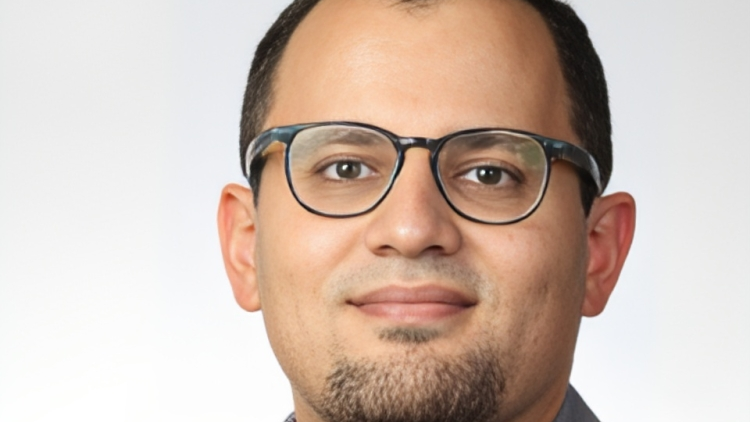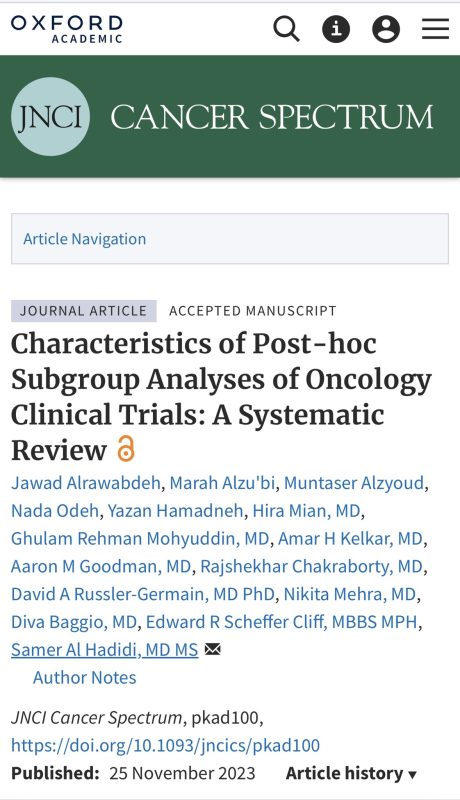
Samer Al Hadidi: Our study examined the prevalence and characteristics of subgroup analysis in oncology clinical trials
Samer Al Hadidi, Assistant Professor at UAMS Myeloma Center, made the following post on Twitter:
“Check our paper
Characteristics of Post-hoc Subgroup Analyses of Oncology Clinical Trials: A Systematic Review
Led by a great team of students in: Jawad, Marah, Muntaser, Nada and Yazan
Relevant as we approach ASH23
Subgroup analyses are usually only able to generate hypotheses rather than definitive conclusions
Our study examined the prevalence and characteristics of subgroup analysis in oncology clinical trials
We systematically reviewed published subgroup analyses from 2000-2022
We included secondary, post-hoc, or subgroup analyses of interventional clinical trials in oncology, cancer survivorship, or cancer screening, published separately to original clinical trial publication.
Out of 16,487-screened publications, 1,612 studies were included; primarily subgroup analyses of treatment trials for solid tumors (82%) (We included large number of articles)
Medical writers contributed to 31% of articles, and 58% of articles reported conflicts of interest.
Subgroup analyses increased significantly over time, with 695 published between 2019-2022, compared to 384 from 2000-2014
Gastrointestinal tumors (25%) and lymphoid lineage tumors (39%) were most frequently studied solid and hematological malignancies, respectively
Industry funding and reporting of conflicts of interest increased over time
Subgroup analyses often neglected to indicate their secondary nature in the title
(Very important implications for patients and medical community)
Our study demonstrates the rapidly growing use of subgroup analysis of oncology clinical trials, revealing that the majority are supported by pharmaceutical companies, and they frequently fail to indicate their secondary nature in the title.
Given the known methodological limitations of subgroup analyses, caution is recommended among authors, readers, and reviewers when conducting and interpreting these studies.
I am thankful for a great team and friends Manni Mohyuddin, Raj Chakraborty, Hira Mian, Eddie Cliff, Aaron Goodman, David Russler-Germain, Amar Kelkar, Nikita Mehra and Diva Baggio.
Who shaped this important work. Thank you for reading.”

For details click here.
Source: Samer Al Hadidi/Twitter
-
Challenging the Status Quo in Colorectal Cancer 2024
December 6-8, 2024
-
ESMO 2024 Congress
September 13-17, 2024
-
ASCO Annual Meeting
May 30 - June 4, 2024
-
Yvonne Award 2024
May 31, 2024
-
OncoThon 2024, Online
Feb. 15, 2024
-
Global Summit on War & Cancer 2023, Online
Dec. 14-16, 2023
